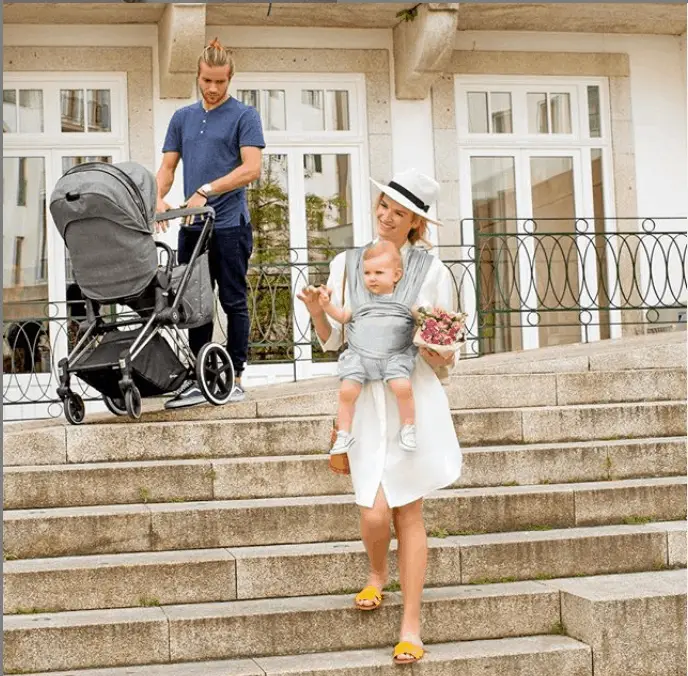Raising a newborn can be an exciting and fantastic experience. However, it can also be terrifying, exhausting, and overwhelming. It is a straightforward task, but challenging without proper guidelines and knowledge.
Since your child is fully dependent and requires a lot of care from you, you probably feel obligated and determined. If you happen to be a first-time parent, it is essential to understand that making mistakes is inevitable.
If you strive to create a concrete bond with your baby, care, and nature them from a tender age. Use every event as an opportunity to interact with them. Therefore, if you aren't sure whether you will be able to muddle through parenthood, here are some tips that will assist you.
What are the tips to take care of a baby?
Within the first few months of raising your newborn, you will receive a lot of contradicting advice that will make the experience chaotic. Fortunately, compiled below are some ways to take care of your child, without any baby products:
- Feeding
On average, you should feed a newborn baby every two to three hours. This means that you’ll have to nurse for about eight to eleven times each day. Within the first six months, the child should be on a strict diet of breast milk. Breast milk consists of nutrients such as proteins, amino acids, water, peptides and even DNA which the baby requires for growth.
However, if you are in a situation where breast milk isn't an option, adhere to the doctor's recommended baby formula.
- Taking care of the umbilical cord stump
Within the first month, you should always keep an eye on the navel area, and ensure that it is dry and clean. To do this, keep the child's diapers folded down, to prevent it from getting wet.
To clean the stamp, sanitize your hands, and use a clean cloth to dry the area gently. In case there is redness, pus, a terrible odor, or swelling, don't hesitate to take the child to a doctor, since those are red flags that indicate an infection.
- Burping
When feeding your child, chances are they have swallowed a lot of air. This can result in colic and gas accumulating in their bellies. To expel the air, you will be required to burp the child. This process will assist the child in averting spit-ups and proper digestion.
With one hand, hold the child on the chest, and let his chin relax on your shoulder, then gently stroke them until they burp.
- Sleeping
In the first two months, your child should sleep for approximately sixteen hours every day. However, they often sleep for three to five hours and wake up if they have solid themselves or they are hungry.
Ensure that you change your child's head position while napping to stop flat spots from forming on it. Further, position your newborn head facing up to prevent them from suffocating.
What is good for a newborn baby?
If you are new at parenting or barely spend time around children, their fragility might be alarming. In case you aren't aware of what's suitable for your newborn, keep in mind the following:
- Always sanitize your hands before touching your child
- Whether in frustration or play, avoid shaking your baby
- Support your child’s neck and head with your arm, palm or soft surface
- Always be gentle when handling a child
- Ensure that you have completely fastened your child into the stroller, carrier, or seat belt when on the move
Following the stated steps will assist you during baby care. Do not forget to have your house baby-proofed so that once the baby is able to move and grab things, they are safe from sharp objects and sliding or falling.
How do you co-parent when you have a newborn?
Co-parenting prevents most children from attaining a secure and safe attachment with both parents. Additionally, you shouldn't argue or conflict when you are around them.
Instead, you should put aside your differences and display a lot of love and affection to them. Therefore, you may have to reconsider if you opted to share custody with the child.
At what age can you use a baby sling?
A sling is a baby carrier that is fashioned with soft fabric and is a safe way to carry your baby, if you follow the guidelines. The stranded age of carrying your child on a baby sling is four months.
This is because the children’s neck might not be fully developed in the first few months after birth. If the fabric pressures the baby’s face, it might restrict them from breathing, consequently leading to suffocation.
Therefore, ensure that you read all the baby sling instructions, which includes the maximum weight that it can hold. Additionally, it would be best if you also kept an eye for any tares in the sling's fastener and seam.
Understand that Baby Care is All Consuming
Motherhood isn’t a walk in the park, but when done right, it’ll turn out as bright as day. As you get into this new chapter of life, take note that you’ll go through a lot of emotions and require strength and as much support as you can from your partner. One way to start off easy is to purchase convenient baby products that’ll make your baby duties easy to do. Avoid trying out different products on your baby and make a habit of consulting your pediatrician whenever you’re not sure of what to do.
Don't Forget Self Care
It's easy as a parent to forget about taking care of yourself, but remember to treat yourself also!



